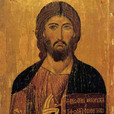
Summary: This episode is titled, “Jerome.”By his mid-30’s, Jerome was probably the greatest Christian scholar of his time. He’s one of the greatest figures in the history of Bible translation, spending 3 decades producing a Latin version that would be the standard for a thousand years. But Jerome was no bookish egghead. He longed for the hermetic life we considered in the previous episode & often exhibited a sour disposition that showered his opponents with biting sarcasm and brutal invective.His given name was Eusebius Hieronymus Sophronius and was born in 345 to wealthy Christian parents either in Aquileia in NE Italy or across the Adriatic in Dalmatia.At about 15, Jerome and a friend went to Rome to study Rhetoric & Philosophy. He engaged with abandon many of the immoral escapades of his fellow students, then followed up these debaucheries with intense self-loathing. To appease his conscience, he visited the graves & tombs of the martyrs and saints in Rome’s extensive catacombs. Jerome later said the darkness & terror he found there seemed an appropriate warning for the hell he knew his soul was destined for.This tender conscience is interesting in light of his initial skepticism about Christianity. That skepticism began to thaw when he realized what he was experiencing was the conviction of the Holy Spirit. His mind could not hold out against his heart and he was eventually converted. At 19, he was baptized.He then moved to Trier in Gaul where he took up theological studies & began making copies of commentaries & doctrinal works for wealthy patrons.Jerome then returned to Aquileia, where he settled in to the church community and made many friends.Several of these accompanied him when he set out in 373 on a journey thru Thrace and Asia Minor to northern Syria. At Antioch, 2 of his companions died and he became seriously ill. During this illnesses, he had a vision that led him to lay aside his studies in the classics and devote himself to God. He plunged into a deep study of the Bible, under the guidance of a church leader at Antioch named Apollinaris. This Apollinaris was later labeled a heretic for his unorthodox views on Christ. He was one of several at this time trying to work out how to understand and express the nature of Jesus; was He God, Man or both? And if both, how are we to understand these two natures operating within the One, Jesus? Apollinaris said Jesus had a human body & soul, but that his mind was divine. This view, creatively called Apollinarianism, was declared heretical at the Council of Constantinople in 381, though the church had pretty well dispensed with it as a viable view of Christ back in 362 at a Synod in Alexandria, presided over by our friend Athanasius.While in Antioch & as a fallout of his illness & the loss of his friends, Jerome was seized with a desire to live an ascetic life as a hermit. He retreated to the wilderness southwest of Antioch, already well-populated by fellow-hermits. Jerome spent his isolation in more study and writing. He began learning Hebrew under the tutelage of a converted Jew; and kept in correspondence with the Jewish Christians of Antioch. He obtained a copy of the Gospels in Hebrew, fragments of which are preserved in his notes. Jerome translated parts of this into Greek.Returning to Antioch in 379, he was ordained by Paulinus, whom you’ll remember was the bishop of the Nicaean congregation there. This is the Bishop & church supported by Rome when the Arian church in Antioch was taken over a new also-Nicaean Bishop named Meletius. Instead of the 2 churches merging because the cause of their division was now removed, they became the political frontlines in the battle for supremacy between Rome & Constantinople.Recognizing Jerome’s skill as a scholar, Bishop Paulinus rushed to ordain Jerome as a priest, but the monk would only accept it on the condition he’d never have to carry out priestly
